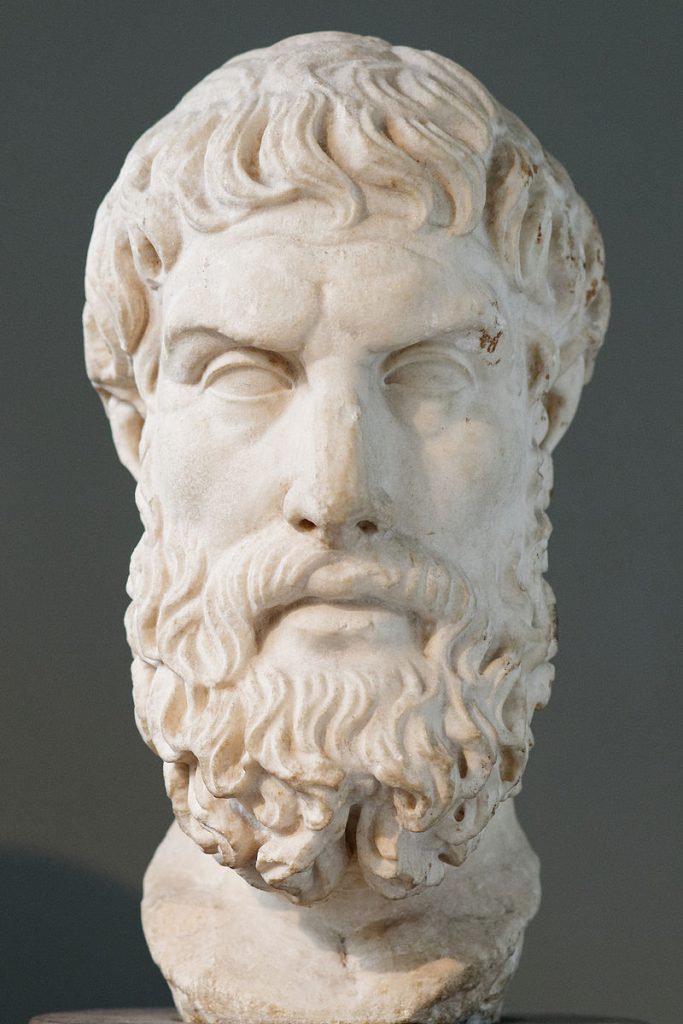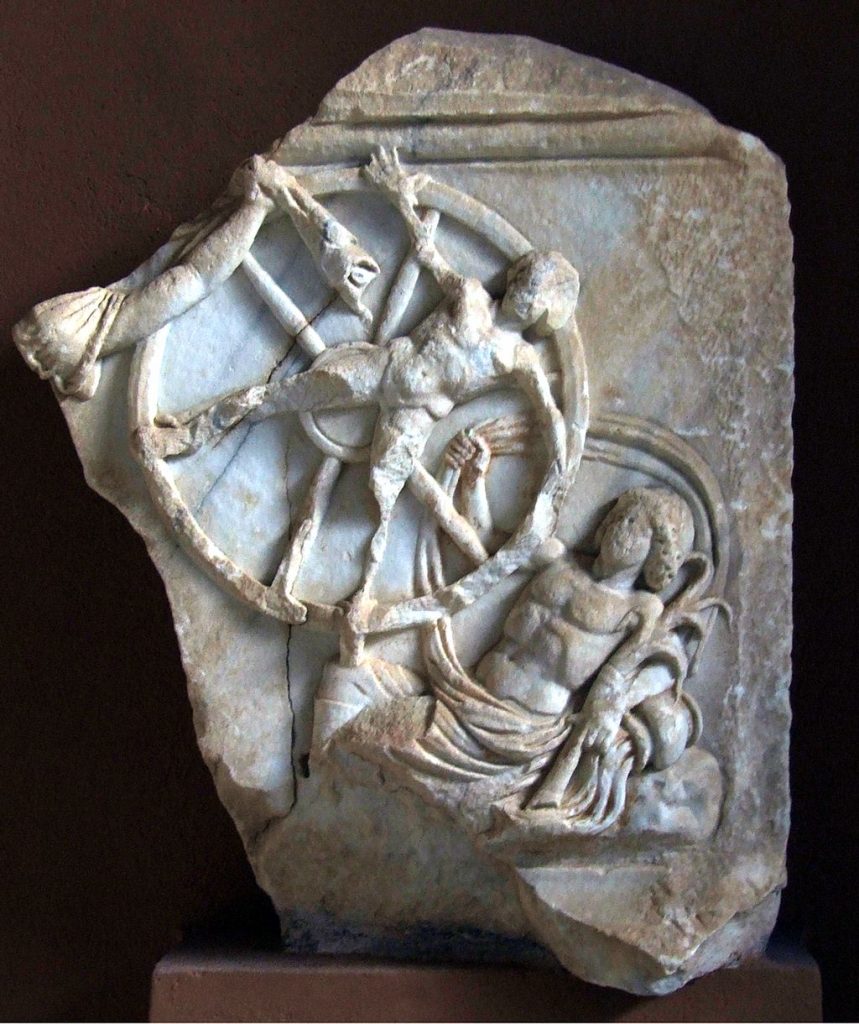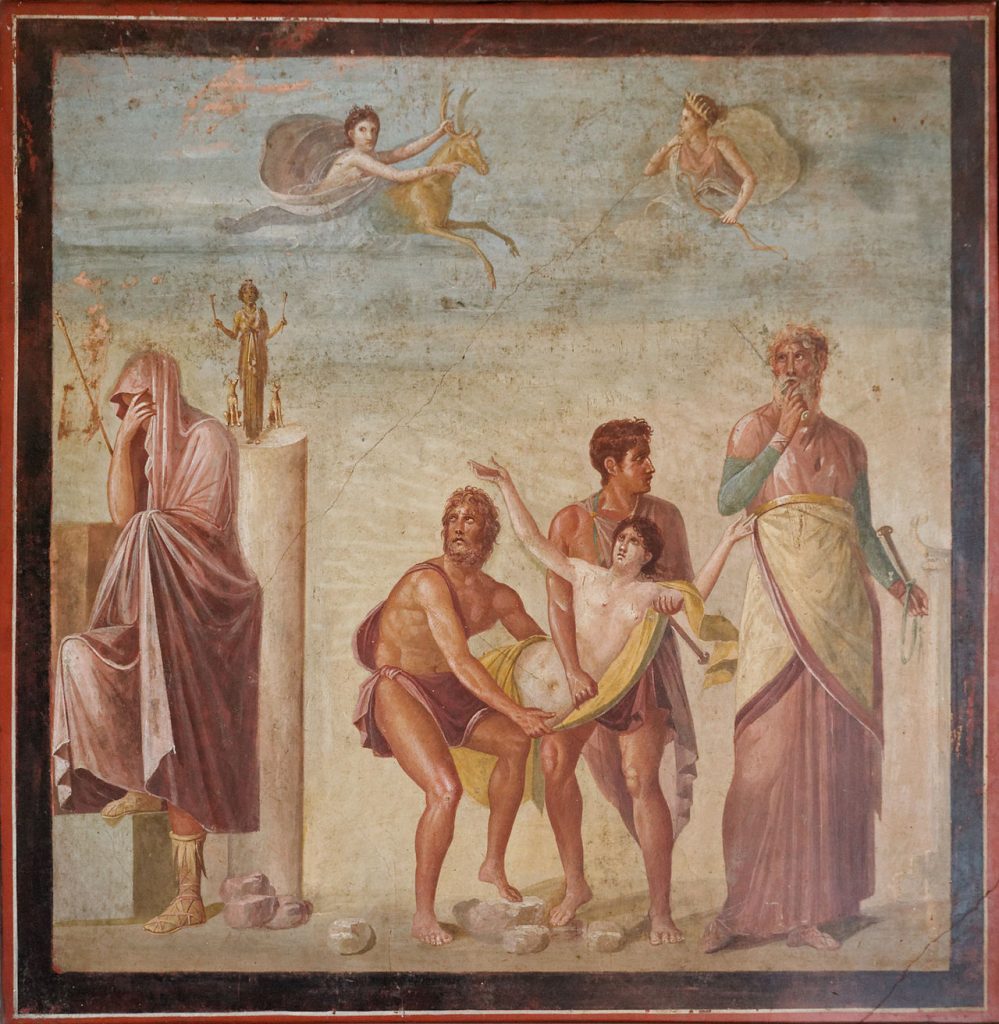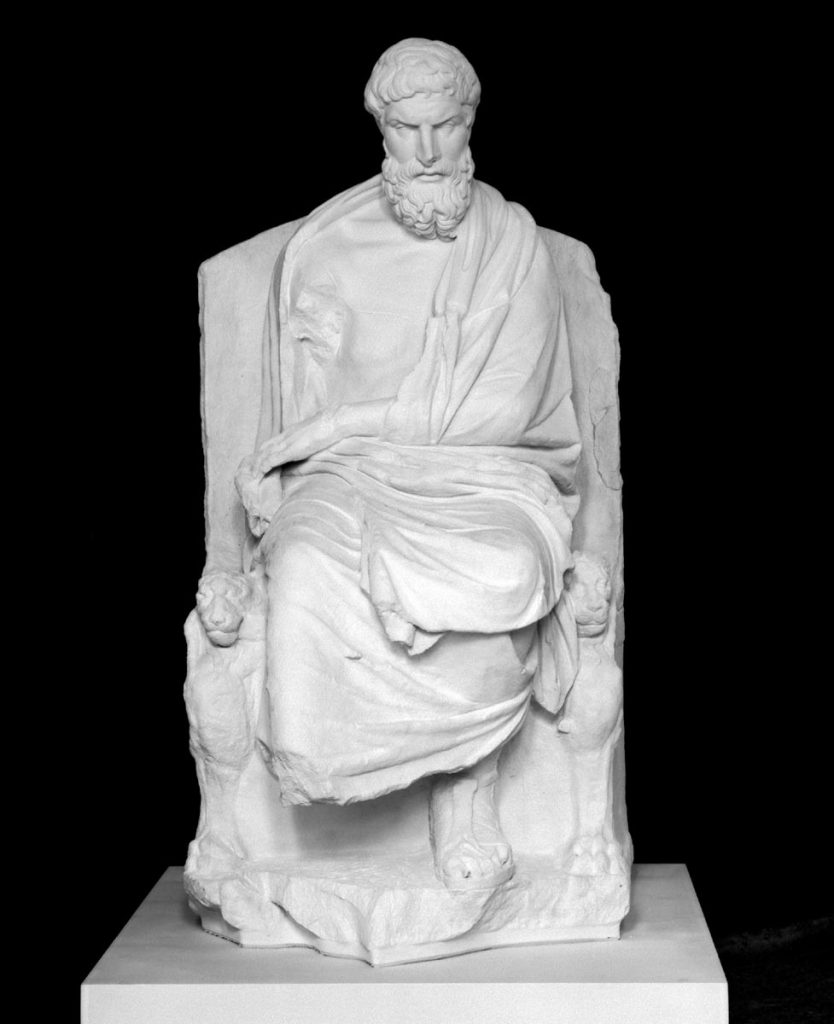“It is impossible to live a pleasant life without living wisely and well and justly.
And it is impossible to live wisely and well and justly without living a pleasant life.”
~ Epicurus, The Principal Doctrines

Portrait of Epicurus, founder of the Epicurean school. Roman copy after a lost Hellenistic original.
So when we say that pleasure is the goal we do not mean the pleasures of the profligate or the pleasures of consumption… but rather the lack of pain in the body and disturbance in the soul. For it is not drinking bouts and continuous partying and enjoying boys and women, or consuming fish and other dainties of an extravagant table, which produce the pleasant life, but sober calculation which searches out the reasons for every choice and avoidance and drives out the opinions which are the source of the greatest turmoil for men’s souls. ~ Epicurus, Letter to Menoeceus
I recommend constant activity in the study of nature; and with this sort of activity more than any other I bring calm to my life. ~ Epicurus, Letter to HerodotusMarble sculpture depicting Epicurus enthroned
So death, the most frightening of bad things, is nothing to us; since when we exist, death is not yet present, and when death is present, then we do not exist. ~ Epicurus, Letter to Menoeceus

Marble relief from the first or second century showing the mythical transgressor Ixion being tortured on a spinning fiery wheel in Tartarus. Epicurus taught that stories of such punishment in the afterlife are ridiculous superstitions and that believing in them prevents people from attaining ataraxia.
Therefore, so long as the soul remains in the body, even though some other part of the body be lost, it will never lose sensation… On the other hand the rest of the structure, though it continues to exist either as a whole or in part, does not retain sensation, if it has once lost that sum of atoms, however small it be, which together goes to produce the nature of the soul. Moreover, if the whole structure is dissolved, the soul is dispersed and no longer has the same powers nor performs its movements, so that it does not possess sensation either. ~ Epicurus, Letter to HerodotusSo, when shall be no more – when the union of body and spirit that engenders us has been disrupted – to us, who shall then be nothing, nothing by any hazard will happen any more at all. Nothing will have power to stir our senses, not though earth be fused with sea and sea with sky. ~ Lucretius, De Rerum Natura
First of all believe that god is a being immortal and blessed, even as the common idea of a god is engraved on men’s minds, and do not assign to him anything alien to his immortality or ill-suited to his blessedness: but believe about him everything that can uphold his blessedness and immortality. For gods there are, since the knowledge of them is by clear vision. But they are not such as the many believe them to be: for indeed they do not consistently represent them as they believe them to be. And the impious man is not he who denies the gods of the many, but he who attaches to the gods the beliefs of the many. For the statements of the many about the gods are not conceptions derived from sensation, but false suppositions, according to which the greatest misfortunes befall the wicked and the greatest blessings the good by the gift of the gods. For men being accustomed always to their own virtues welcome those like themselves, but regard all that is not of their nature as alien. ~ Epicurus, Letter to Menoeceus

First-century AD Roman fresco from Pompeii, showing the mythical human sacrifice of Iphigenia, daughter of Agamemnon. Epicurus’s devoted follower, the Roman poet Lucretius, cited this myth as an example of the evils of popular religion, in contrast to the more wholesome theology advocated by Epicurus.











One comment
It is actually a workable philosophy because it focuses on moderation, the limitation of pain and suffering and it put gods in their rightful place…
In monotheism this life is seen as less important and that suffering is important…
It takes a lot of enjoyment and purpose out of life because it places myth above everything, even modern science.
God, their version was nowhere to be seen for the last 2000 or more years and they are extreme to create people with are not at least partially irrational…
Something like Epicureanism is a reltively balanced, but, one can say, incomplete view…
It is not totalitarian by nature and it doesn’t have the potential form a tyranny like one will find in Christianism…
Trackbacks
Our apologies, you must be logged in to post a comment.